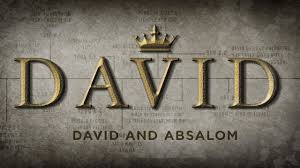Conflict with Absalom
Second Samuel 13:23 to 14:33
As Warren Wiersbe describes in his commentary on Second Samuel, the first ten chapters of Second Samuel reveal how YHVH empowered David to defeat Isra’el’s enemies and establish and expand the Kingdom. Then David committed the sins of adultery, murder and deception in Chapters 11 and 12, and the rest of the book describes David wrestling with the problems caused by his own children. His days are dark and disappointing, but he still relied on ADONAI, and God enabled David to overcome and prepare the Gentile nations for the reign of his son Solomon.

Absalom is the main character in this part of the play, for it was Absalom who helped to turn the drama into a tragedy. There were three heirs to David’s throne: Amnon, the first born, Absalom his third son, and Adonijah. When confronted with Nathan’s parable about the rich man and the poor man, David had declared: The man who did this must pay for the lamb four times over (Second Samuel 12:6), and David would pay dearly four times over with the deaths of four of his sons. First, Bathsheba’s infant son died. The LORD had warned David that the sword would never depart from his house and Absalom, which ironically means peaceful, was the first to take up the sword. Secondly, Absalom killed his brother Amnon for raping his sister Tamar, then thirdly, Joab killed Absalom during the battle of Mount Ephraim, and fourthly, Adonijah was slain for trying to usurp the throne from Solomon (First Kings 2:12-25).
David was reigning as king over Isra’el, but sin and death were reigning within his own family (Romans 14, 17 and 21). ADONAI had forgiven David’s sins (Second Samuel 12:13), but the consequences for those forgiven sins were very painful. Ha’Shem had blessed David with many sons (First Chronicles 28:5), but now the LORD would turn some of those blessings into curses (Malachi 2:1-2). Later, Jeremiah would say it this way: Your own wickedness will correct you, your own backsliding will convict you; you will know and see how bad and bitter it was to abandon ADONAI your God, and how fear of Me is not in you, says Adonai ELOHIM-T’zva’ot (Jeremiah 2:19 CJB).362



Leave A Comment